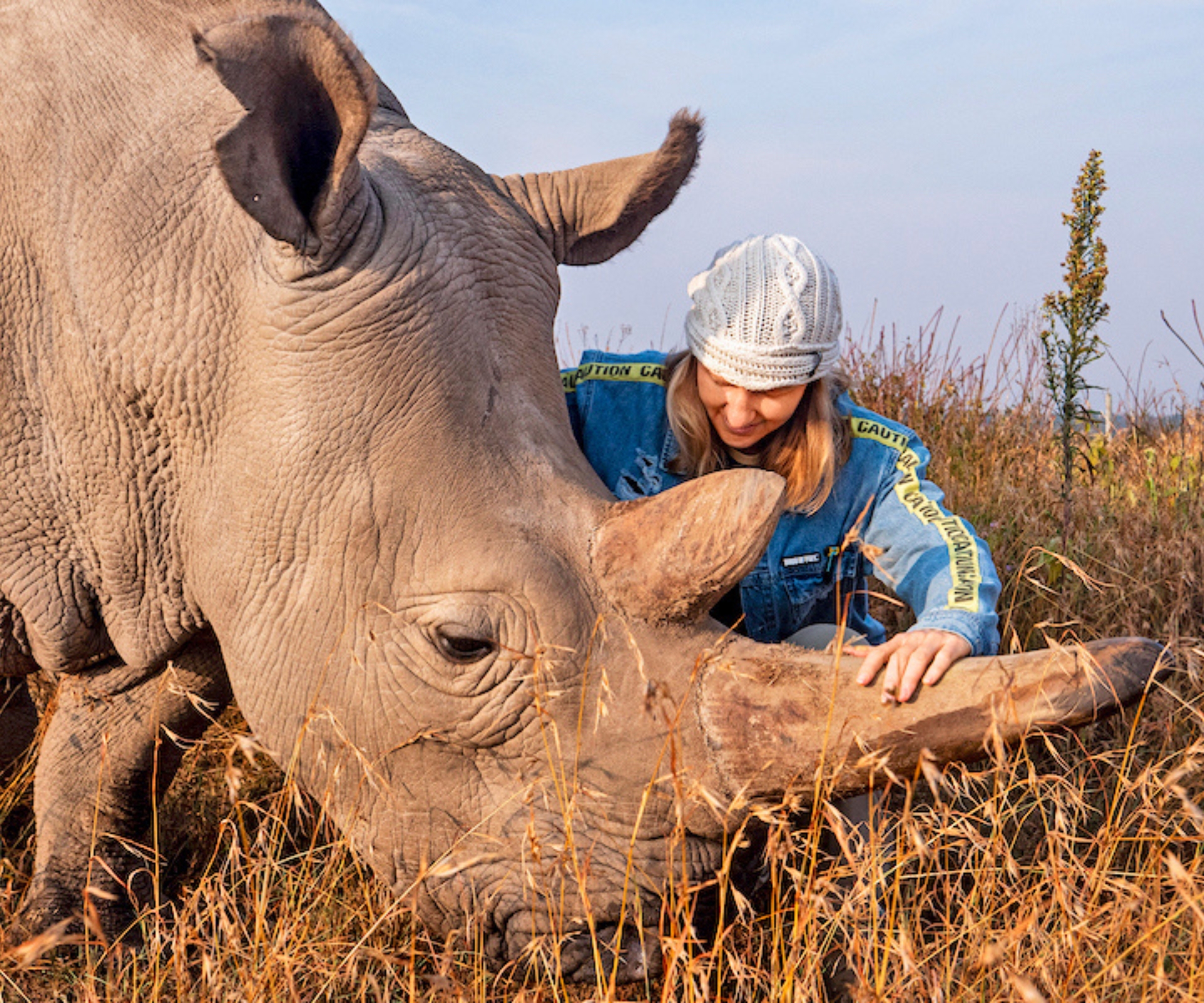Having a Hollywood A-lister make a movie about you is something most people can’t imagine in their wildest dreams. For Jamie Joseph, the founder and director of charity Saving the Wild, it’s reality – and it’s far from the most incredible part of her story.
Jamie was born in Zimbabwe and raised in South Africa. During school holidays, the family would visit the country’s national parks, where Jamie felt a profound sense of belonging.
“Being around elephants, rhinos and lions… There’s a feeling of awe. It’s like the greatest fairytale on Earth,” she enthuses.
For a while, though, she lost sight of that connection with nature. After high school, she worked as a web developer, then pivoted to organising music festivals. Both left her unfulfilled.
“I love music, but going to festivals is very different from organising festivals. The music business can be very dark. I needed to get out.”

In 2009, she emigrated to New Zealand, where her brother had already settled. Life here felt idyllic, but Jamie found herself stuck in the same rut, organising the Global Breakthrough Festival in Mt Maunganui.
“After a few years, I thought, ‘What are you doing? This is not healthy.’” So she escaped to a remote Indonesian island and found her way back to nature.
“I was so broken. I had to rebuild myself the way I wanted to be all along.”
During this time, she learned that Africa’s rhino poaching crisis had escalated. In Vietnam and China, a single horn can fetch tens of thousands of dollars because of a belief in their medicinal properties.
“I made an immediate decision – ‘I’m going back to Africa and I’m going to try to make a difference.’”
In 2014, she started Saving the Wild. Initially, she shadowed rangers and vets, sharing their stories online. Then the head of anti-poaching at Phinda Private Game Reserve told her something life changing: “If you really want to make a difference, start exposing the corruption.”

She went undercover and even convinced some poachers to become informants. Her biggest triumph came in 2017, when she exposed the Blood Rhino Blacklist, an alleged syndicate of corrupt judges, magistrates and lawyers who had been taking bribes on rhino-poaching cases.
The fight has come at a cost, Jamie admits. “I had no idea the sacrifices I’d have to make going into it. It gets lonely.”
She has no fixed address and no bank accounts in South Africa. She moves often and leaves no trace – with good reason.
“There was a hitman after me for a while,” she tells. “He was very public about it. He tried to go for my throat, outside the courthouse, and my security detail pushed him back.”
Sound like something out of a movie? It soon will be, thanks to Barbie star Margot Robbie. In 2018, during a trip to Los Angeles, Jamie met producer Anthony Mastromauro through a mutual friend. On hearing her story, he exclaimed, “You’re the Erin Brockovich of rhino poaching!” Then he set up a meeting with Margot and her husband Tom Ackerley, who co-own production company LuckyChap.
Over gin and tonics at LA’s exclusive Soho House, Jamie and Margot bonded instantly. “She really cares about nature,” says Jamie. “She and I had similar childhoods – in the dirt, playing with our cousins. I knew she was the right person to tell this story.”

In 2019, Margot spent a week with Jamie in South Africa. The pandemic and Hollywood strikes delayed things, but they hope to start shooting this year. Naturally, the Weekly asks if Margot will be playing Jamie. After a long pause, she responds, “I can’t say.”
Meanwhile, Jamie has thrown herself into the Saving the Wild Beekeeping Project, which she launched in 2020, in partnership with New Zealand mānuka honey company Comvita. Together, they have placed hundreds of beehives on Maasai-owned land in Kenya’s Kimana Wildlife Corridor and helped the Maasai people learn beekeeping skills.
This brings financial stability, meaning they don’t have to sell their land to developers. The precious wilderness is preserved, the ecosystem is protected and the profits from honey sales go to scholarship funds for local kids. Saving the Wild Women followed, training local girls to become beekeepers. Comvita provided equipment and its head beekeeper travelled to Kenya to teach the girls.
“The bee projects have given me something positive, away from poaching,” says Jamie. “If you spend too much time in the darkness, you become the darkness.”
To make a donation to Jamie’s charity, Saving the Wild, visit savingthewild.com/donate/




